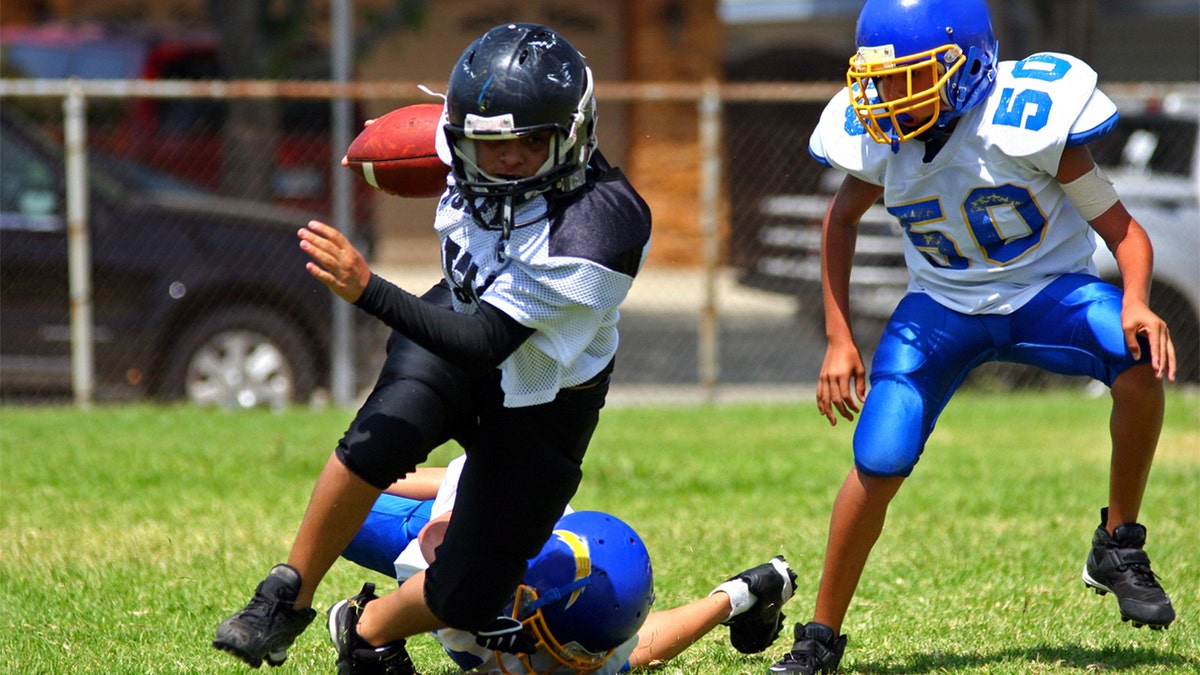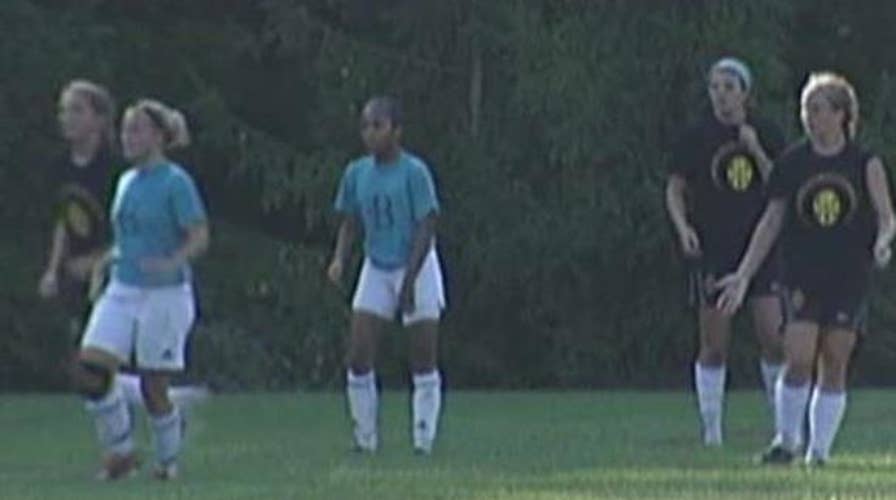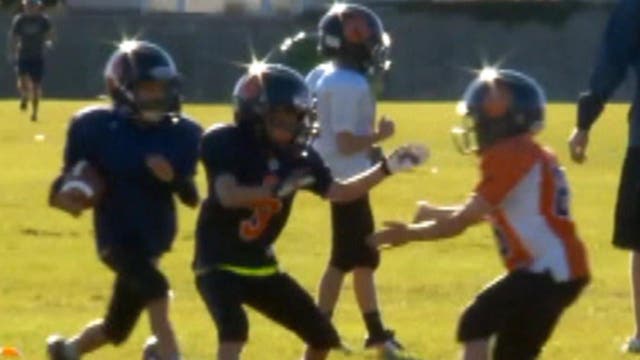Concussion study suggests girls soccer can be just as dangerous as football
Study finds the concussion rate for teen female soccer players rivals that of football players, with headers responsible for 25 percent of concussions and collisions associated with nearly 50 percent; insight from Dr. Janette Neshiewat, medical director of CityMD.
As the effects of concussions have become better understood, parents have become increasingly confused about when it's OK to let their kids start on contact sports.
A statement published online Monday in the journal JAMA Pediatrics is offering new guidelines, The Associated Press reported.

Kids should be taught collision techniques before beginning play in contact sports. (iStock)
- Kids should be taught collision techniques before beginning play in contact sports.
- There is not conclusive evidence that younger children face higher risks for getting sports-related concussions.
- Evidence is inconclusive on whether multiple childhood concussions are linked with long-term neurological changes.
- Technology that measures head impact exposure, and advanced brain imaging techniques, are both experimental and not ready for use.
- Helmets should be worn in high-impact sports though there’s little or no evidence that headgear prevents concussion in rugby and soccer.

There is not conclusive evidence that younger children face higher risks for getting sports-related concussions. (iStock)
CLICK HERE TO SIGN UP FOR OUR LIFESTYLE NEWSLETTER
The long-term effect of multiple concussions in youth sports remains an open question.
“Parents worry, ‘Is one concussion to my child going to result in him having dementia at age 50?’” said lead author, Dr. Frederick Rivara to The AP. “And the data are pretty clear that the answer is no.”
Pediatric experts in sports medicine, neurology and related fields evaluated and rated three decades of sports concussion-related research.

Evidence is inconclusive on whether multiple childhood concussions are linked with long-term neurological changes. (iStock)
There’s no evidence that there has been a true increase even if there is more awareness of the potential dangers of concussions, said Dr. Cynthia LaBella, a panel member from Chicago’s Lurie Children’s Hospital.
“The last thing we want to tell kids is not to be active,” said Rivara, a pediatrician and injury prevention researcher at the University of Washington’s medical school.
The Associated Press contributed to this report.










































